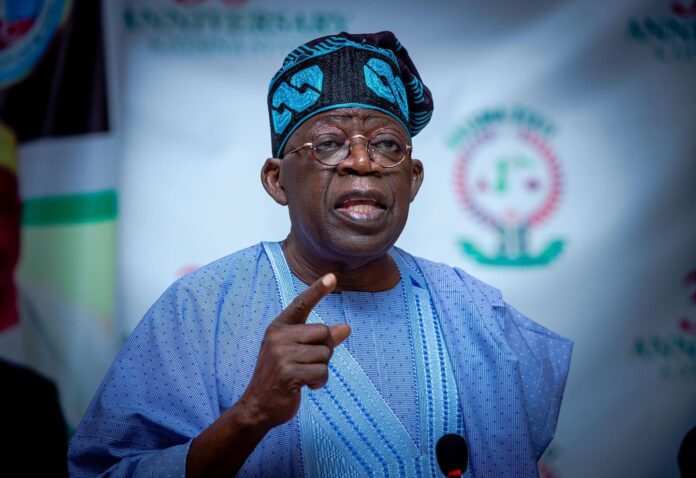President Bola Tinubu has reiterated his stance on the removal of petrol subsidy, stating that he has no regrets about the decision made in May 2023. According to him, Nigeria can no longer afford to subsidize fuel for neighboring countries.
During a recent interview at his residence in Ikoyi, Lagos, Tinubu emphasized that the subsidy removal was a necessary reform. “I don’t have any regrets about removing the petrol subsidy,” he said. “We were spending our future and deceiving ourselves. The reform was necessary to increase competition in the sector and allow the market to dictate prices.”
Tinubu noted that the removal of the subsidy has led to a crash in pump prices, as the market has become more saturated with suppliers. “The market is being saturated, and there’s no monopoly or oligopoly. It’s a free market economy,” he explained.
The President also expressed his opposition to price control, stating that he would rather focus on increasing supply to meet demand. “I don’t believe in price control. We will work hard to supply the market,” he said.
Nigeria’s energy challenges are well-documented, with all state-owned refineries currently non-operational. The country relies heavily on imported refined petroleum products, which has led to frequent fuel queues and soaring prices.
The removal of the subsidy has seen petrol prices rise from around N200 per liter to over N1,000 per liter, exacerbating the struggles of citizens who rely on petrol to power their vehicles and generators due to the country’s erratic electricity supply.
The unified forex windows introduced by the government have also had a significant impact, with the value of the naira plummeting from $1/N700 to over $1/1600 at the parallel market. As a result, prices of food and basic commodities have skyrocketed, leaving Nigerians to battle with inflation.








